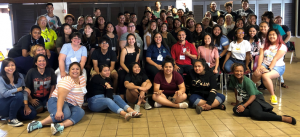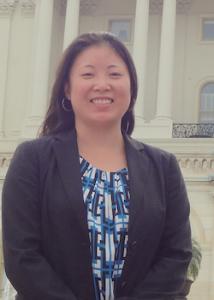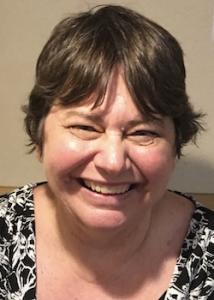UH researchers win federal grant to strengthen youth suicide prevention efforts
University of Hawaiʻi at MānoaAsst to the Dean, Comms Liaison, Thompson School of Social Work & Public Health

Youth workshop attendees at the 2019 statewide Prevent Suicide Hawaii Conference. (Photo courtesy: Deborah Goebert)
Rural, Native Hawaiian and Pacific Islander youth and communities have greater needs with respect to suicide prevention and mental health support. Now, with a new $3.5-million grant, University of Hawaiʻi at Mānoa researchers in public health and psychiatry will aim to reach at least 60,000 of these young people in Hawaiʻi with suicide prevention efforts.
Researchers Jeanelle Sugimoto-Matsuda of the Office of Public Health Studies in the Thompson School of Social Work & Public Health and Deborah Goebert of the John A. Burns School of Medicine, along with their colleagues, were awarded the federal grant from the Substance Abuse and Mental Health Services Administration. The grant will fund the Hawaiʻi's Caring Systems Initiative for Youth Suicide Prevention.
"Our approach is to offer hope, help and healing to youth in Hawaiʻi's rural and underserved areas," Sugimoto-Matsuda said. "This grant will fund our efforts to reach youth in their schools, communities, and health care facilities, and to also improve the effectiveness of these systems."
Fostering collaboration across systems
The initiative uses a strengths-based approach, meaning it will work to enhance existing programs and tap into the resiliency and relationships in Hawaiʻi families and communities. The researchers selected four best practice programs that will be involved:
-
The Connect Suicide Prevention and Postvention Curriculum
-
Sources of Strength
-
The American Foundation for Suicide Prevention's Suicide Bereavement Support Group Facilitator Training
-
Zero Suicide (including Continuity of Care)
Sugimoto-Matsuda and Goebert's initiative will foster collaboration across these various systems and communities, and integrate their work so that more youth can be reached. The initiative will impact teens, young adults, parents and families, healthcare and education providers, community members and professionals who work with youth.
"We want to work across all of the systems that serve the youth in our state––education, health care, and other social services systems––in partnership with our communities," Goebert said.
Despite the adversity faced by today's youth, most do not develop suicidality or self-harm behaviors, she noted. The team's long-term partnerships with community organizations, including the Prevent Suicide Hawaiʻi Taskforce, will help them to strengthen the capacity of the systems and improve prevention of youth suicide deaths and attempts.
"When we strengthen the systems that serve our youth to better prevent suicide and build resiliency, we strengthen all of Hawaiʻi," Sugimoto-Matsuda said.
Help is available
If you are having thoughts of suicide, or you are worried about a loved one, call the National Suicide Prevention Lifeline at 1-800-273-8255 (TALK), or text “ALOHA” to the national Crisis Text Line at 741-741. Additional resources are available at https://www.preventsuicidehi.com/.
About the Office of Public Health Studies
The Office of Public Health Studies at the University of Hawai‘i at Mānoa trains public health professionals and conducts research that benefits the people of Hawai‘i and the Asia-Pacific region. The OPHS is fully accredited by the Council on Education for Public Health and is part of the Thompson School of Social Work & Public Health. OPHS faculty members are experts in topics including infectious disease, chronic disease, genetics, environmental impacts on health, indigenous health, and health promotion.


